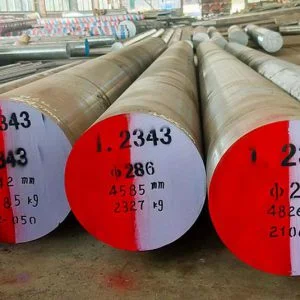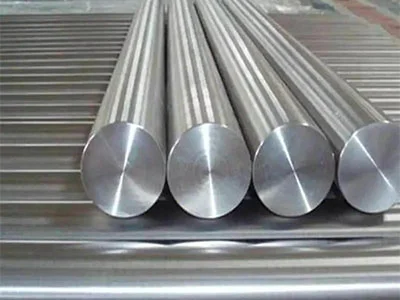Introduction

H11 tool steel, renowned for its exceptional properties, stands tall as a cornerstone material in various industries. This article delves into the advantages and applications of H11 tool steel, shedding light on its significance and utility.
Advantages of H11 Tool Steel
High Hardness and Wear Resistance
H11 steel boasts remarkable hardness, making it ideal for applications requiring resistance to wear and abrasion. Its superior hardness ensures prolonged tool life and durability in demanding environments.
Excellent Toughness
In addition to hardness, H11 steel exhibits excellent toughness, enabling it to withstand high-impact loads without succumbing to fractures or deformation. This attribute enhances the tool’s reliability and performance under strenuous conditions.
Good Thermal Conductivity
H11 steel possesses commendable thermal conductivity, facilitating efficient heat dissipation during operations. This feature helps prevent overheating, thereby enhancing the tool’s longevity and maintaining dimensional stability.
Superior Machinability
The machinability of H11 tool steel is another standout characteristic, allowing for ease of shaping, forming, and finishing processes. This attribute streamlines manufacturing operations, reducing production time and costs.
Corrosion Resistance
With its inherent resistance to corrosion, H11 steel demonstrates resilience against environmental factors such as moisture and chemicals. This corrosion resistance extends the tool’s lifespan and preserves its structural integrity.
Applications of H11 Tool Steel
H11 steel finds extensive applications across diverse industries, owing to its exceptional properties. Some notable applications include:
Die Casting
In die casting operations, H11 tool steel is favored for its high heat resistance and thermal conductivity. It is utilized in manufacturing dies and molds for casting various materials, including metals and plastics.
Extrusion Tooling
H11 tool steel’s combination of hardness, toughness, and machinability makes it well-suited for extrusion tooling applications. It is employed in the production of extrusion dies for shaping materials such as aluminum, brass, and polymers.
Hot Forging
The robustness and thermal stability of H11 steel make it an excellent choice for hot forging tools. It withstands the extreme temperatures and mechanical stresses involved in forging processes, ensuring reliable performance and extended tool life.
Plastic Molding
In plastic molding applications, H11 steel is preferred for its ability to withstand high pressure and temperature variations. It is used to fabricate molds and inserts for injection molding and blow molding processes, contributing to the efficient production of plastic components.
Aerospace Industry
H11 steel finds utilization in the aerospace industry for manufacturing critical components such as turbine blades, engine parts, and structural components. Its combination of strength, toughness, and heat resistance meets the stringent requirements of aerospace applications.
Comparative Properties of H11 Tool Steel

| Property | H11 Tool Steel | Other Materials |
|---|---|---|
| Hardness (HRC) | 45-50 | 40-45 |
| Toughness (J/cm²) | 20-25 | 15-20 |
| Thermal Conductivity (W/m·K) | 25-30 | 15-20 |
| Corrosion Resistance | High | Variable |
| Machinability | Excellent | Moderate |
Conclusion
In conclusion, H11 tool steel emerges as a versatile and reliable material offering a myriad of advantages across various industrial applications. Its exceptional properties, including high hardness, toughness, thermal conductivity, machinability, and corrosion resistance, make it indispensable in die casting, extrusion tooling, hot forging, plastic molding, and aerospace applications. As industries continue to evolve, the demand for H11 tool steel is expected to remain robust, driving innovation and enhancing productivity.
FAQ
Q: What are the main advantages of H11 tool steel?
A: H11 steel offers high hardness, excellent toughness, good thermal conductivity, superior machinability, and corrosion resistance.
Q: What industries commonly use H11 steel?
A: H11 steel finds applications in die casting, extrusion tooling, hot forging, plastic molding, and the aerospace industry.
Q: How does H11 tool steel compare to other materials?
A: H11 steel typically exhibits higher hardness, toughness, and thermal conductivity compared to other materials commonly used in similar applications.
Q: What factors contribute to the popularity of H11 tool steel?
A: The popularity of H11 steel stems from its exceptional combination of properties, which enhance tool performance, productivity, and longevity in demanding industrial environments.
